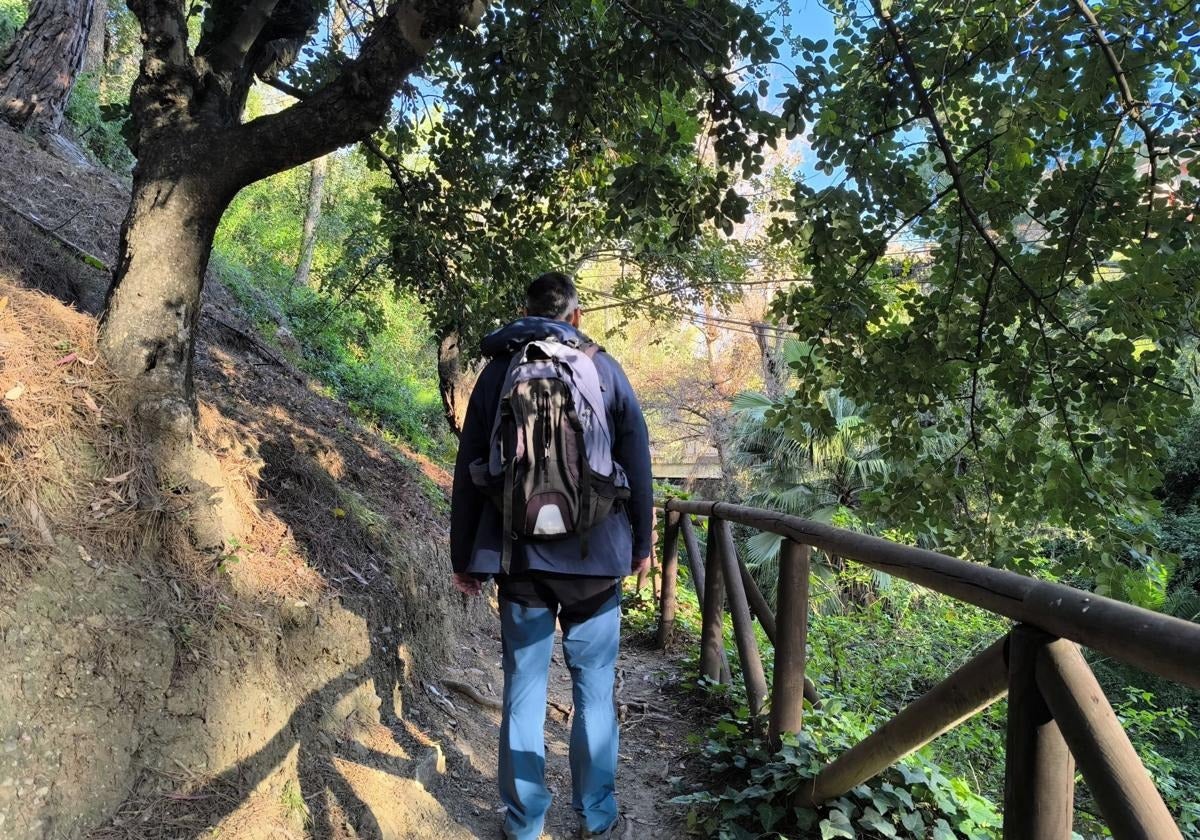

Sections
Highlight

A simple route that runs from south to north through the Torreblanca residential area and Arroyo de las Presas in Fuengirola on the Costa del Sol.
Area: Western Costa del Sol
Municipality: Fuengirola
Difficulty level: Low. Although it is just over two kilometres long (counting the routes inside the Presas park), there are some sections of embedded wooden steps steep slopes to bear in mind. It can be done with small children, as long as they are used to hiking. It is not suitable for cycling or for people with reduced mobility. In case of rain, access to the path is prohibited.
Type of route: Linear
Approximate duration: 50 minutes (one way)
Length: 2.2 kilometres (one way).
Minimum altitude: Three metres
Maximum altitude: 88 metres
Nearby places of interest: Sohail Castle, Fuengirola's Osborne Bull, Torreblanca, fluvial park, Bioparc Fuengirola, Sould park, marina, Finca del Secretario Roman site and Fuengirola's town museum.
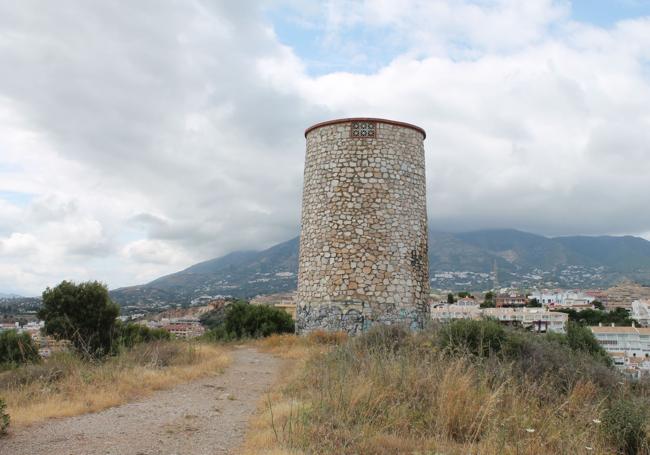
The route starts next to Torreblanca beach (in front of the breakwater) in Fuengirola. If you go by car park on Avenida Paseo Marítimo Rey de España. You can also use the Renfe local train line, which has a stop in the upper part of this area of Fuengirola (about 800 metres from the starting point). The route can also be started at the top of the Parque de las Presas or even skip the first section from the promenade, as it is the least attractive part.
1From Torreblanca beach (opposite the breakwater), the entrance to this route is easy to find. As soon as you cross it, turn off to the left onto a path that runs along the right-hand side of the arroyo de las Presas stream. This first section, which passes under a couple of bridges and has no dirt track, is the least attractive part of the whole route. After about 400 metres, you leave the concrete and start walking along a dirt track.
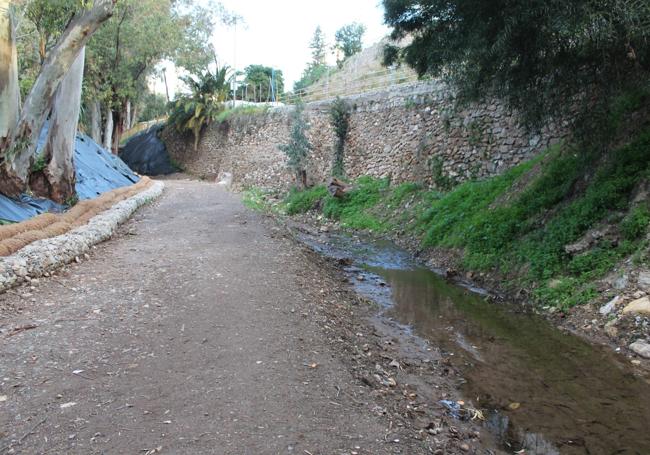
2On this first part of the route you will have to cross the stream which is normally mostly dry. In fact metal cylinders with concrete have been installed to divert the stream. After a kilometre of climbing you will have to leave the riverbank for a few metres to walk along the pavement that leads to Parque de las Presas. There is a pedestrian walkway that leads to the entrance of the park.
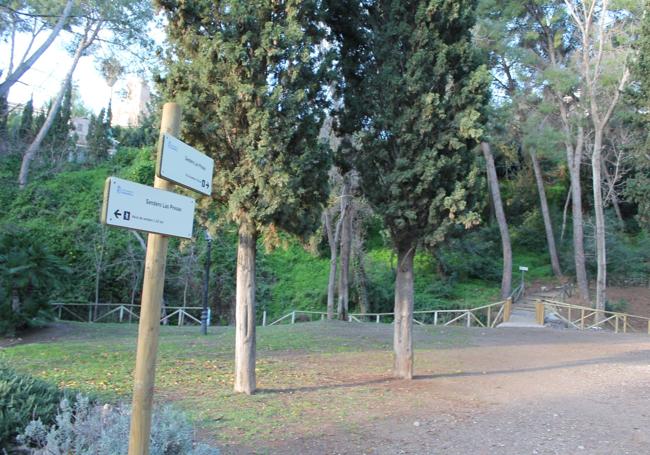
3The most attractive part of this route is in the Parque de las Presas. There, the track enters a leafier area, always staying next to the stream. Shortly after, you will have to cross a couple of wooden bridges that allow you to continue climbing. After the second one there are some embedded wooden steps that allow you to continue along the route, although inside the park there is a small circular section that should not be missed. If not on the way out, it is advisable to do it on the way back.
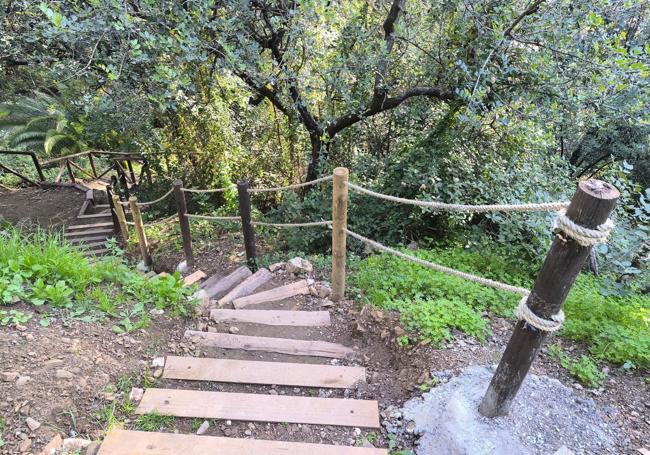
4After climbing the wooden steps, you reach a wider and easier path that continues gently upwards. After walking along it for about a hundred metres, you will come out onto the road again. Continue a few metres along the pavement (Calle de las Orquídeas is on the right) until you return to the last section of this route.
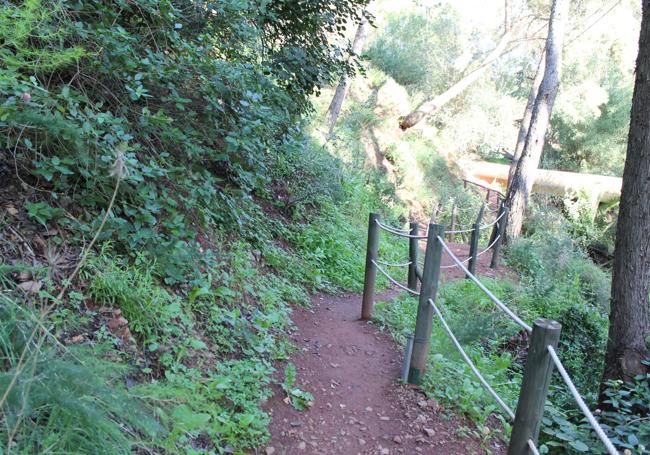
5At the roundabout where Calles Orquídeas and Oropéndola meet there is a new entrance to this route (on the left). In this case, the landscape changes completely compared with the previous one, as you walk along a wider path with surprisingly tall eucalyptus trees. Some of them have been used for the ivy to grow. In the last sections you will have to cross the last wooden bridge, from which you can see the largest waterfall on this route. Next to this small waterfall there is an area with benches and wooden tables. Afterwards you will have to return along the same path to the starting point, although there are also other options along the streets of the Torreblanca residential area.
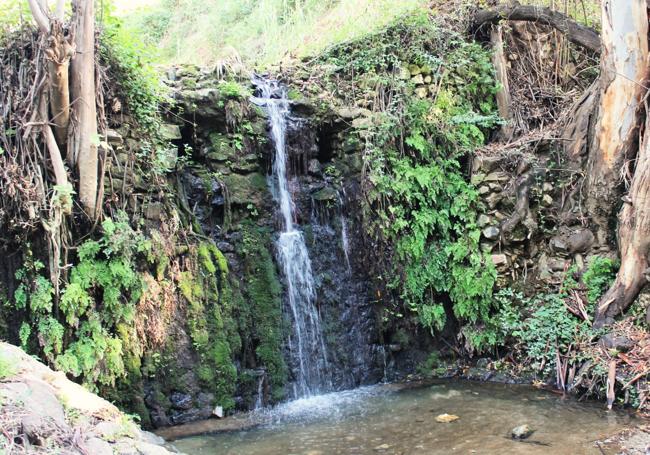
Parque de las Presas is home to a wide variety of wildlife with plenty of vegetation along the stream as well as eucalyptus, carob, pine (stone and Aleppo), cypress, willow and holm oak trees. You should also be able to see different birds from ducks to blackbirds, sparrows or parrots, among many other species.
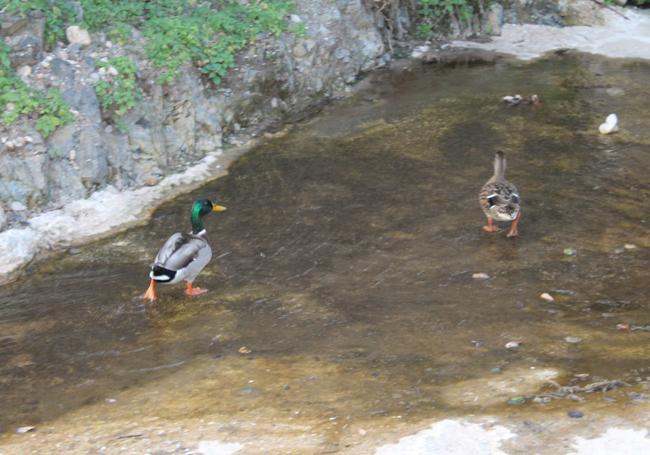
Publicidad
Publicidad
Publicidad
Publicidad
Esta funcionalidad es exclusiva para registrados.
Reporta un error en esta noticia

Debido a un error no hemos podido dar de alta tu suscripción.
Por favor, ponte en contacto con Atención al Cliente.

¡Bienvenido a SURINENGLISH!

Tu suscripción con Google se ha realizado correctamente, pero ya tenías otra suscripción activa en SURINENGLISH.
Déjanos tus datos y nos pondremos en contacto contigo para analizar tu caso

¡Tu suscripción con Google se ha realizado correctamente!
La compra se ha asociado al siguiente email
Comentar es una ventaja exclusiva para registrados
¿Ya eres registrado?
Inicia sesiónNecesitas ser suscriptor para poder votar.